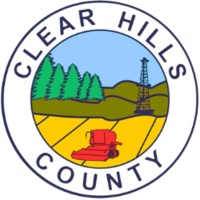Annual Property Assessments
'Assessment' is the process of assigning a dollar value to a property. This value is then used to calculate the amount of taxes owed.
Under the Municipal Government Act (MGA), all property in Alberta must be assessed annually. These yearly assessments capture changes in the marketplace, helping to protect taxpayers from significant fluctuations over time. Property assessments ensure that taxes are distributed fairly and equitably, meaning that owners of properties with similar market values will pay comparable amounts in property taxes.
An Assessor visits your property to accurately determine the physical characteristics, condition and use of the property. They will determine if buildings are present on the property and their use. The Assessor will also determine how the parcel is to be assessed, if all or part of the parcel is being used for farm, a farm residence, or other uses on the property or within buildings. The Municipal Government Act provides assessors with the authority to enter the property and examine records in accordance with their duties.
Reliance Assessment Consultants Ltd.
Property Tax Consultants
780-450-2406
randy.affolder@telus.net
